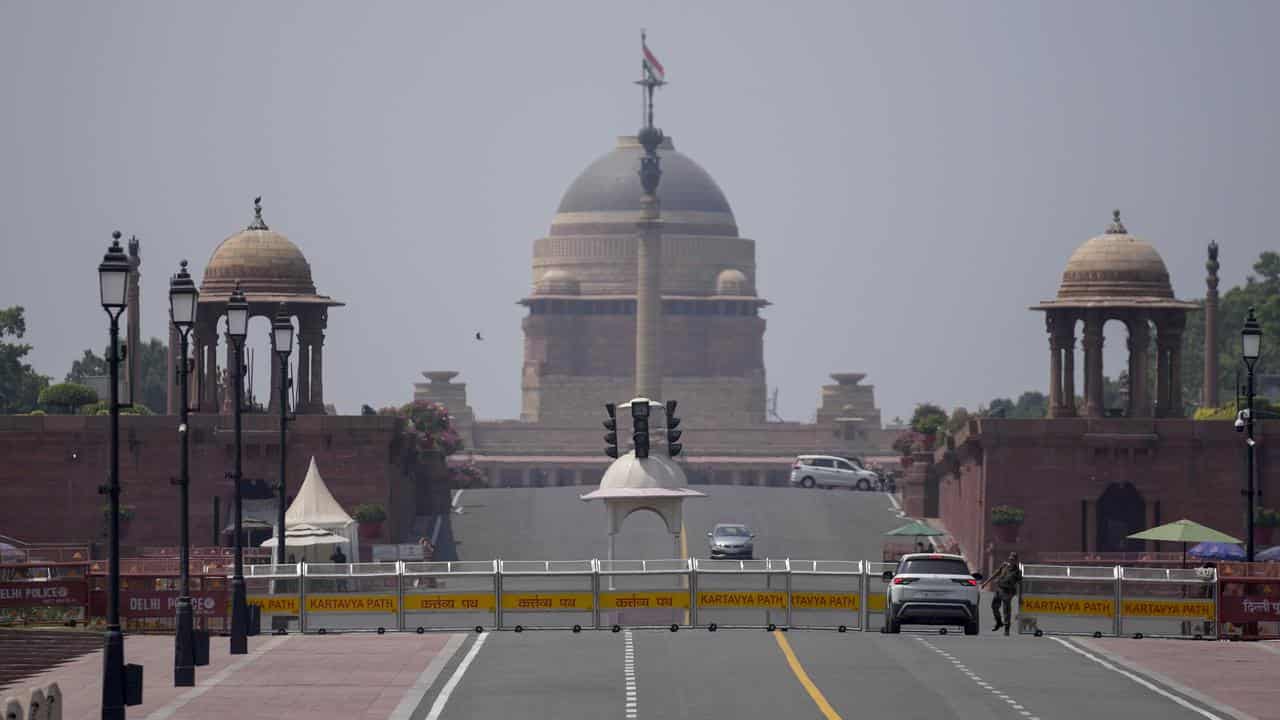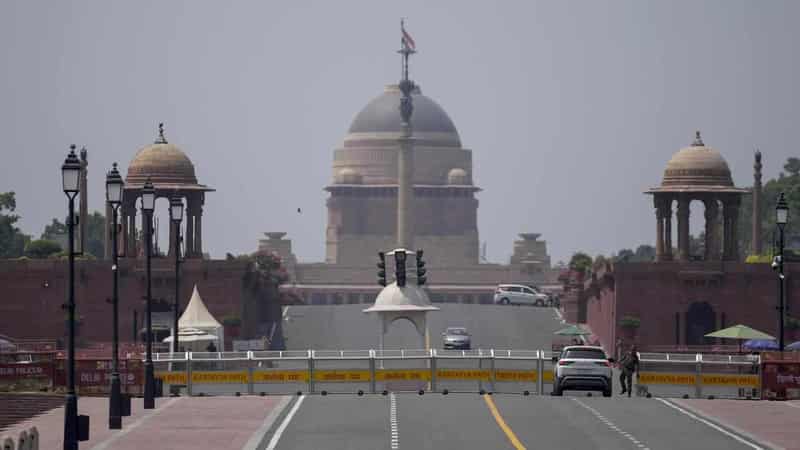
G20 countries have almost finalised a declaration for the weekend summit of its leaders, host India says, suggesting negotiators have made progress in bridging differences in the group over the war in Ukraine.
The streets of the usually bustling capital New Delhi were deserted ahead of the summit with businesses, offices and schools closed as part of security measures to ensure the smooth running of the meeting, the most high-powered to be hosted by the country.
Slums, monkeys and stray dogs have been removed from the streets.
India's G20 sherpa, or negotiator, Amitabh Kant said the summit's concluding statement, the Leaders' Declaration, will be a "voice" of the global south and developing countries.
"New Delhi Leaders' Declaration is almost ready," Kant told a news conference.
" I would not like to dwell on it.
"This declaration will be recommended to the leaders."
Negotiators of the Group of 20 (G20) major economies have been struggling for days to agree on the language in the document because of differences over the war, hoping to get Moscow and Beijing on board to produce a communique that will also address pressing global problems such as debt and climate change.
The weekend summit in New Delhi is expected to be dominated by the West and its allies.
Chinese President Xi Jinping is skipping the meeting and sending Premier Li Qiang instead while Russia's Vladimir Putin will also be absent.
United States President Joe Biden, German Chancellor Olaf Scholz, French President Emmanuel Macron, British Prime Minister Rishi Sunak, Saudi Arabia's Mohammed Bin Salman and Japan's Fumio Kishida, among others, will attend.
China said on Friday it was willing to work with all parties and push for a positive outcome at the summit.
Chinese foreign ministry spokeswoman Mao Ning made the remarks after a media report said Sunak blamed China for delaying an agreement on various issues, including Ukraine.
Sunak will urge Indian Prime Minister Narendra Modi to "call out" Russia over its invasion and use its clout to help end the war, the Financial Times reported on Thursday.
The hardened stance on the war has prevented agreement on even a single communique at the ministerial meetings during India's G20 presidency so far this year, leaving it to the leaders to find a way around, if possible.
Modi's government is projecting India's presidency of the group and the summit as a showcase for the country's fast-growing economy and its rising position in the geo-political pecking order.
More than 100 Tibetan refugees staged a protest away from New Delhi's centre on Friday, demanding that the "occupation" of their country by China be discussed during the summit.
US Treasury Secretary Janet Yellen, who is in New Delhi ahead of Biden's arrival on Friday, earlier said Washington was willing to work with India to help craft a communique at the end of the summit but it would be a challenge.
"I know the negotiators are discussing it, and working hard to do so and we stand ready certainly to work with India to try to craft a communique that successfully addresses this concern," Yellen told reporters at a briefing.
The most important thing that can be done to support global economic growth is for Russia to end its brutal war in Ukraine, she said.
The IMF has forecast lower growth for most G20 nations this year than in 2022.
European Council President Charles Michel echoed that view.
It was difficult to predict whether leaders would reach a consensus on a declaration but the EU would support efforts made by India for a final communique, Michel earlier told reporters in New Delhi.
Western countries want a strong condemnation of the invasion as a condition for agreeing to a Delhi declaration.
India has suggested that the G20, while condemning the suffering caused by Russia's invasion, also reflects Moscow and Beijing's view that the forum is not the place for geopolitics.
The group has also been divided on commitments to phasing down fossil fuel use, increasing renewable energy targets and reducing greenhouse gas emissions.









